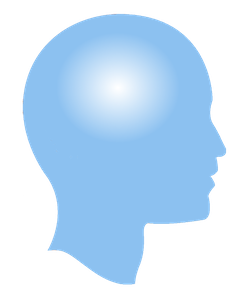being woke means being aware… knowing what’s going on in the community (related to racism and social injustice)’. Today, ‘woke’ is now best known as a negative political buzzword used to describe anything deemed too liberal or progressive.
Woke is a term usually used in discussions of racism and sexual orientation. The idea is that if you are woke you understand the prejudices at work in racist positions and opinions about sexual identities.
In The Identity Trap: A Story of Ideas and Power in Our Time, Yascha Mounk describes some disturbing conclusions being drawn from the “wokeist” position.
Schools and universities, foundations and some corporations seem to believe that they should actively encourage people to conceive of themselves as “racial beings.” Increasingly, they are also applying the same framework to other forms of identity, encouraging people to think of their gender, their cultural origin, or their sexual orientation as their defining attribute. (emphasis added)
Increasingly, they are also applying the same framework to other forms of identity, encouraging people to think of their gender, their cultural origin, or their sexual orientation as their defining attribute. (emphasis added)
What Mounk is saying is that identifying ourselves or others primarily by racial, sexual, or cultural differences leads inevitably to intolerance of those identifying as other than us. Identity groups often feel excluded from a larger society and demand acceptance of their differences. However, these same identity groups can be fiercely intolerant of other identity groups, seeing them as competitors in the bid for general social acceptance. One way inter-identity group hostility can manifest itself is seen in the Pro-Palestinian protests currently taking place on campuses across America and other places. The obvious problem with Pro Something identity groups is that they are simultaneously Anti Some Other identity group. Taking one side against another can only result in conflict. Sometimes the conflict turns violent.
Ironically, as Mounk points out, identifying individuals according to gender, cultural origin, or sexual orientation has led some institutions to segregate people according to these identities – justifying it as identity validation. This thinking where a person’s “defining attribute” is their gender orientation, their race, or their culture of origin, serves only to fragment society and to strengthen the boundaries between identity groups.
What emerges from this examination is that the problem is not our differences but our intolerance of identities different from our own. We have trouble appreciating people who identify or are identified as being different from our own group identity. This is a version of tribalism which is responsible for virtually every major conflict now playing out in the world from social injustice to the tragedy of international wars.
Because tribalism is so universal in human populations it is often assumed to be an instinctive, and therefore, immutable human trait. But a closer look reveals that our past does not necessarily determine our future. S. David Wu, president of Baruch College, puts it this way:
https://presidentsblog.baruch.cuny.edu/on-tribalism-it-may-or-may-not-be-what-you-think/
…“the more we learn, the more we are able to appreciate the beautiful complexity around us—and in us,” tribalism offers one of many explanations of a much more complex social psychological phenomenon—a combination of cognitive and emotional processes—that lead us to instinctively prioritize our own group over others. But human beings have demonstrated, time and again, that we are much more than that.
…human minds are adaptable. They can and have evolved to expand our association with “our tribe.” That is, if we act to provide the setting, the mechanism, and the environment to interact with those outside our tribe in a positive and engaging way, we can emotionally expand or redefine our tribal membership. You see evidence of it everywhere…
The tendency of tribalism to lead to intolerance of those in different identity groups, while seemingly a default inclination, is not immune to influences that may increase understanding of and compassion for other groups. An antidote to tribal-based intolerance is, then, would be to “provide the setting, the mechanism, and the environment” for learning about and interacting with those who we consider to be different from us. But when hard lines have been drawn between “them” and “us” there may be little motivation for individuals to engage in these concillatory activities. A larger context in which these behaviours are supported is required. This context should be one in which there are compelling reasons to look beyond tribal lines.
As discussed in The Hopeful Mindset, adherents to The Independent (Cynical) Mindset tend to attempt to meet their needs for safety and security by establishing firm boundaries and practices designed to keep them safe from what they perceive to be people and ideals that threaten the interests and integrity of their own particular tribe or in-group. Within the confines of the Independent Mindset there is little tolerance or sympathy for those outside one’s personal tribal identity. It is a mindset that encourages the exclusion of, and even violence toward, those perceived as “other”
In contrast to The Independent Mindset, those who adopt The Interdependent (Hopeful) Mindset see meeting their needs for safety and security in a different light. Taking interdependence to heart these individuals understand that meeting their needs without considering the implications of their actions on the ability of others to meet their needs would be ultimately harmful to themselves. This is a mindset, a context, that provides the “the setting, the mechanism, and the environment” for encouraging and supporting cooperation, sustainability, and compassion. And there are compelling reasons to adopt this outlook. Aside from being a way forward to a “kinder, gentler” future The Interdependent (Hopeful) Mindset is a worldview that can save us from our selves and reverse the devastating ecological consequences and humanitarian atrocities wrought by The Independent (Cynical) Mindset.

